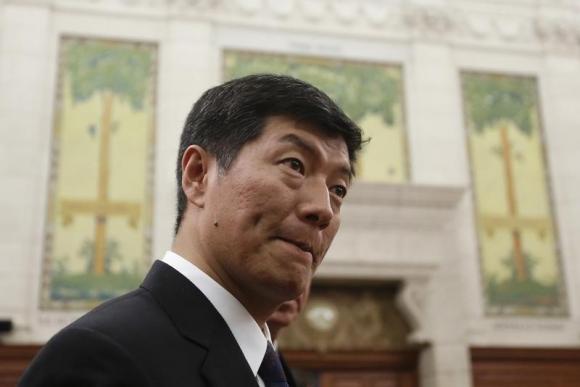Frank Jack Daniel at Reuters reports that Lobsang Sangay, the prime minister of Tibet’s self-proclaimed government-in-exile, says that “China has kept open informal channels of dialogue with the exiled Tibetan leadership even though official talks have been stalled since 2010″:
A Harvard lawyer born in India, Sangay said he was hopeful Chinese President Xi Jinping would resume formal talks and soften China’s handling of Tibet.
“This hardline policy has not worked. In the last 50 years it has gone through this vicious cycle of repression, resentment and protests. So it is clearly not working,” he said.
Sangay made his comments before the launch of a global publicity campaign aimed at persuading world governments to put pressure on China to restart the dialogue and change its policy on Tibet. The Tibetans say they are not seeking independence, but greater autonomy under the Chinese constitution.
[…] Representatives of the Dalai Lama held rounds of talks with China until 2010, but formal dialogue has stalled amid leadership changes in Beijing and a crackdown in Tibet. China does not recognise Sangay or the government-in-exile.
However, Xi’s mother was a Buddhist and his father was friendly with Tibet’s spiritual leader the Dalai Lama, giving Tibetan leaders some hope that the president who took office in 2012 could be more conciliatory. [Source]
Agence France-Presse (via The South China Morning Post) notes that “the Dalai Lama and other exiled Tibetan leaders will on Thursday launch a renewed push for autonomy within China”:
The leaders will meet in the northern Indian hill station of Dharamsala to kick off a media campaign promoting the “Middle Way” for peaceful autonomy for Tibetans, in a bid to pile global pressure on Beijing to revisit the issue.
The prime minister of Tibet’s government in exile, Lobsang Sangay, is expected to host a press conference, after taking over the job of pushing for autonomy from the spiritual leader.
But the Dalai Lama, who stepped down from political duties in 2011, stole the spotlight on the eve of the launch by urging China to embrace democracy in comments marking the 25th anniversary of the Tiananmen Square crackdown.
The Nobel Peace Prize winner offered prayers for the hundreds of people – by some estimates, more than 1,000 – who died in Beijing on June 3-4, 1989 when Communist authorities sent in troops to crush their peaceful pro-democracy protests. [Source]








